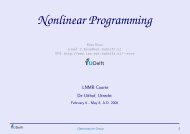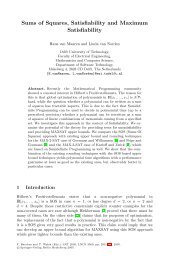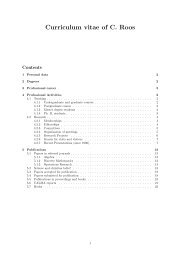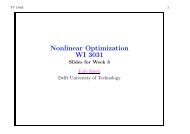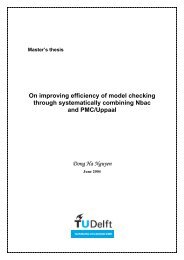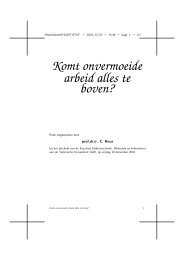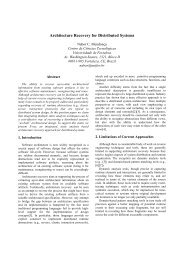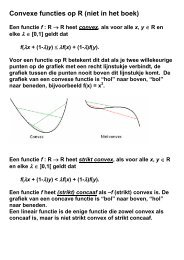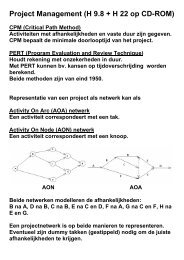Full-Newton step polynomial-time methods for LO based on locally ...
Full-Newton step polynomial-time methods for LO based on locally ...
Full-Newton step polynomial-time methods for LO based on locally ...
You also want an ePaper? Increase the reach of your titles
YUMPU automatically turns print PDFs into web optimized ePapers that Google loves.
Proof of Theorem 4 (3)Now assuming z ≠ 0, we can eliminate λ by substituting 2 ξ(v) vy = λ ψb ′ (v) into (12),which givesψ b ′ [ (v) ψ′′′b (v) vy2 − ξ(v) z 2] = λ ψ b ′ (v) ψ′′ b (v) y = 2 ξ(v)ψ′′ b (v) vy2 .Rearranging the terms, and using (10) we obtain−ψ ′ b (v)ξ(v) z2 = [ 2 ξ(v)ψ ′′b (v) − ψ′ b (v)ψ′′′ b (v) ]vy 2 = (2−ρ(v)) ξ(v)ψ ′′b (v) vy2 ,yielding−ψ ′ b (v) z2 = (2 − ρ(v)) ψ ′′b (v) vy2 , (14)Since −ψb ′ (v) > 0 and ψ′′b(v) > 0, this equati<strong>on</strong> has no n<strong>on</strong>zero soluti<strong>on</strong> <str<strong>on</strong>g>for</str<strong>on</strong>g> y if ρ(v) > 2,and hence κ is then given by (13).If ρ(v) ≤ 2, substituti<strong>on</strong> of (14) into the c<strong>on</strong>straint ψ ′′b (v) v2 y 2 − ψ ′ b (v) vz2 = 1 yieldsor, equivalently,Henceψ ′′b (v) v2 y 2 + (2 − ρ(v)) ψ ′′b (v) v2 y 2 = 1,[3 − ρ(v)] ψ ′′b (v) v2 y 2 = 1. (15)vy =±1√[3 − ρ(v)] ψb ′′(16)(v).31



